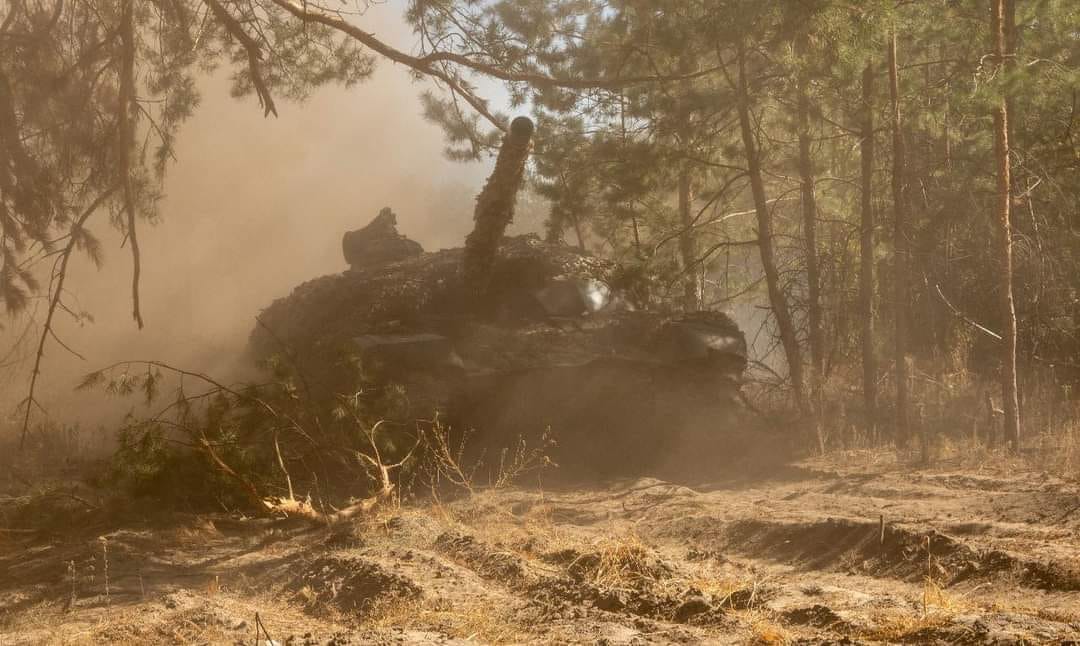In times of war and economic instability, Ukraine faces many challenges but also uncovers new opportunities for growth. In this interview, Aleksandr Katsuba, an IT investor and entrepreneur, discusses current economic trends, investment prospects, business issues, and the future of the country's energy sector.
Aleksandr, how would you assess the current state of Ukraine’s economy in light of the ongoing war?
JOIN US ON TELEGRAM
Follow our coverage of the war on the @Kyivpost_official.
Aleksandr Katsuba: The state of Ukraine's economy can be described as one under complex and extreme conditions that have impacted all major sectors. The war has led to significant losses in industry, agriculture, and services, as well as a reduction in the population's standard of living. The economy is currently operating under high pressure, with businesses forced to adapt to new realities: supply disruptions, broken logistics chains, and rising energy costs.However, despite these challenges, I see resilience in Ukraine's economy. For example, despite the destruction, many businesses have managed to relocate their operations to safer regions and continue to function. Additionally, the agricultural sector, despite all difficulties, remains a primary source of foreign currency for the country. Support from international partners, both financial and technical, plays a crucial role in stabilizing the economic situation.
What investment opportunities do you see in Ukraine today?
Aleksandr Katsuba: Investment opportunities in Ukraine are currently high-risk, but that doesn’t mean they don’t exist. On the contrary, crises often open new doors for those willing to take risks. Today, rebuilding infrastructure destroyed during the conflict presents a significant investment opportunity, covering both transport and energy infrastructure. Renewable energy is especially promising, given Ukraine’s substantial potential in solar and wind power, which could become pivotal for the country's future economic development.Additionally, the IT sector remains highly attractive. Ukrainian IT specialists are known for their high qualifications, and demand for their services continues to grow. Investors may also consider investing in the agro-industrial complex, which, despite all challenges, remains one of the strongest sectors of Ukraine's economy.
Could you elaborate on the state of the energy sector in Ukraine and its prospects?
Aleksandr Katsuba: The energy sector is vital for Ukraine's economic stability. Unfortunately, this sector has suffered significant losses during the war. The destruction of energy infrastructure, including power plants, transmission lines, and gas pipelines, adds further challenges for the economy. However, I am confident that this sector could become a driving force for the country’s recovery.Ukraine’s energy future lies in the development of renewable sources. With the global shift towards decarbonization, Ukraine has the potential to become a leader in green energy production. Wind and solar plants are already demonstrating their effectiveness, and post-war, we could see even more investment growth in this sector. Moreover, expanding green energy would enable Ukraine to integrate into the European energy system, opening new possibilities for electricity exports.It’s also crucial to note the role of state support in the energy sector’s development. Investors need assurance that their investments will be protected, and the state must ensure the stability of the energy market. Cooperation with international financial institutions is essential to provide the necessary funding and expertise for rebuilding the energy infrastructure.
In your opinion, what are the main challenges facing Ukrainian businesses today?
Aleksandr Katsuba: Ukrainian businesses face unprecedented challenges. The war has created conditions where company survival depends on the ability to adapt quickly to new circumstances. This involves physical risks, such as destruction of production facilities, logistical issues, and disruptions in raw material supplies. Many companies have had to evacuate from conflict zones, resulting in losses and reduced production.Moreover, uncertainty about the future development of the situation puts additional pressure on businesses. Entrepreneurs must have contingency plans in case of conflict escalation or new challenges, such as economic sanctions or further economic downturns. Access to financing is also a critical issue. During the war, banks have become more cautious in lending, which poses extra difficulties, especially for small and medium-sized enterprises.Yet, even under these conditions, Ukrainian businesses show remarkable resilience and adaptability. Many companies are reorienting their production processes, exploring new markets, and implementing new technologies. Some have even found opportunities for growth, such as exporting products to countries not previously considered as potential markets.
What do you think is necessary to support Ukrainian businesses during this difficult time?
Aleksandr Katsuba: State support should be a priority. This includes tax breaks for businesses affected by the war and special financing programs for small and medium-sized enterprises. Legal stability and investment protection are also crucial to give entrepreneurs confidence in their investments.Another key aspect is international support. Ukraine needs to collaborate with international organizations to secure access to financial resources and expertise. Grant programs, low-interest loans, and technical assistance can play a decisive role in economic recovery.Finally, fostering the entrepreneurial spirit is essential. Ukrainians have always been creative and resilient, and these qualities are more needed than ever. Innovation, flexibility, and willingness to adapt will enable Ukrainian businesses not only to survive but also to find new growth opportunities even in the most challenging circumstances.
You can also highlight the text and press Ctrl + Enter




